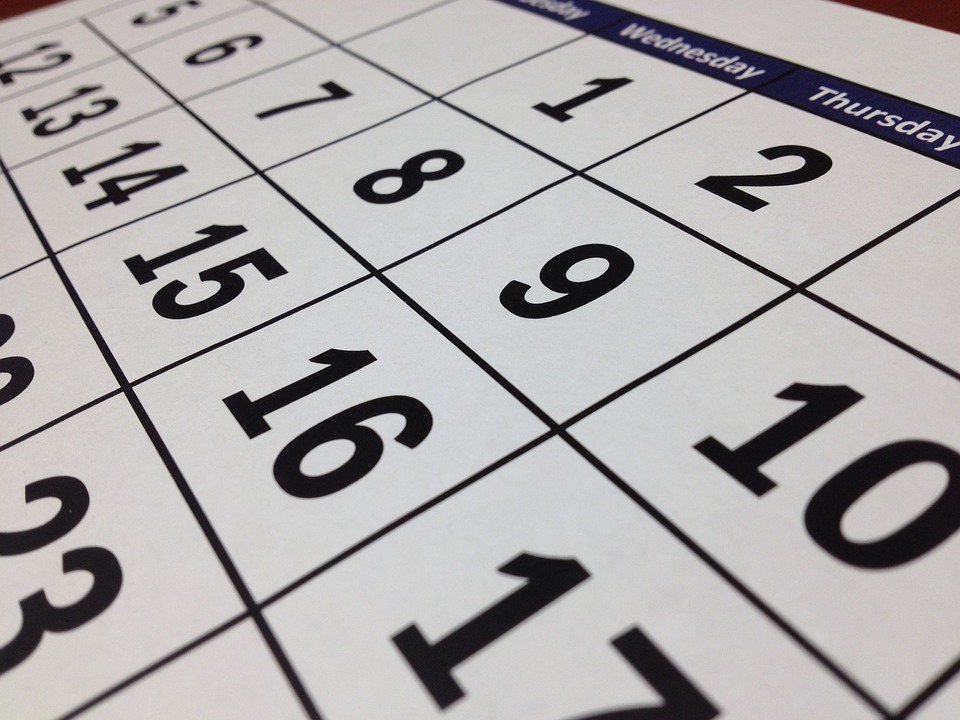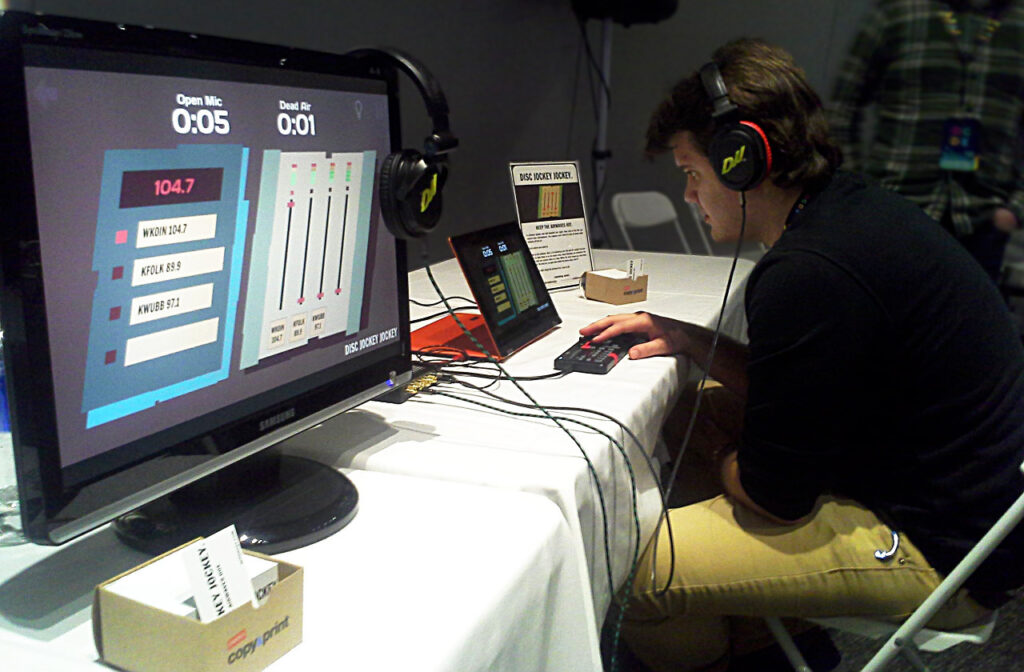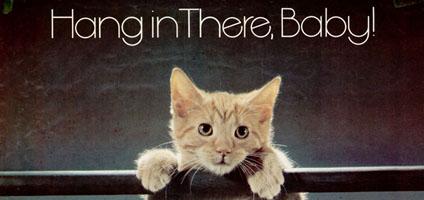Hurdles: Do stuff! Show us!
RunJumpDev Hurdles is an ongoing short-cycle work-and-tell program to spur your project forward. We schedule a couple of projects into each four-week cycle. You can be anywhere in your project’s lifecycle: beginning, middle, or end. Every week for four weeks, you’ll set a public goal (a hurdle), try to meet or exceed that goal, then present your game and weekly progress in a five-minute slot in our Tuesday hack night meetups, and write a short devlog post that we’ll feature on the RunJumpDev blog. We’ll do this with a few projects in each four-week cycle. It’s sort of a slow jam.
Jeff W. plans each cycle and will follow up with you. Don’t worry if you’re not in the next cycle! We’re going to run this for a while.
Inspiration
At IndieCade East 2016, there was a talk called “Indie Game Oases: Building Dev Communities No Matter Where You Are” (watch the video!). In it, Chris DeLeon (of Game Devs Like You on Twitter) described the worldwide Gamkedo community he runs from LA, which is focused on short-term group projects that run to completion. That’s pretty different from our RunJumpDev structure, where most people have their own projects.
I think we can borrow some of those ideas, but apply them to the independent-project nature of our group. So I’m proposing a new RunJumpDev program: Hurdles.

So maybe not quite these hurdles
Why Hurdles?
Hurdles is an external commitment device. It’s a series of public promises. You’re saying that you’ll find the time and make the effort to move your project forward. It works with projects in beginning, middle, and end stages from individuals, teams, or even companies. It will help your presentation skills. It will help you hone your elevator pitch, since you’ll have to deliver it quickly each week. It will help your estimation skills by seeing whether you’re setting realistic goals for yourself or your team. Your presentations will inform RJD members about your project and provide examples of the ways people approach development. And your stint is time-limited so it’s easier to fit into your schedule (sort of like a jam) and so it doesn’t feel like an endless slog. It’s a shot in the arm if you’ve been struggling to get things done.
Each week, someone from each project spends five minutes delivering their pitch, progress, problems, and the plan for the next week.
Hurdles Q&A
Why only a few projects at a time?
Our weekly meetings typically last 2-3 hours. Limiting the projects should keep the weekly presentation period under 30 minutes of that time. It also means if we have lots of interest, we can keep the program rolling with different projects over time.
Why (only) four weeks?
This should be long enough to get significant work done, but short enough that people don’t burn out. Lots of us aren’t making games under deadlines and have other things going on in our lives, and maintaining weekly progress with deliverables can be intense. We want the end to be visible and reachable.

Why pitch the game every week?
How should I present my progress?
Pretty much anything goes. If you want to demo, cool. If you just want to talk about it, cool. If you want to present a short film, cool. You should communicate what you did, whether you met your goal, and any problems you had along the way.
What sort of weekly goals should I set?
Just about anything, really. For your sake, you should make them challenging but achievable. It’s okay to miss the mark a little each week. If you’re easily hitting your goals, maybe they’re not challenging enough. Check yourself week to week and adjust your goals to match.
Can you give me an example?

Sure. I’m working on Disc Jockey Jockey, an audio game about managing FM radio DJ microphones after massive equipment failure. I’m a hobbyist with limited time to work on the game each week. My goals might be:
- (Med) Implement animated screen transitions between scenes with fader sprites wiping in & out.
- (Med) Tune up the tutorial; make the UI operate exactly like it does when playing and add an interactive lesson on using the FM tuner to listen to different stations.
- (Med) Add a 30s attract mode with DJ intros, crossfades, and station switching.
- (Easy) Animate the title screen logo.
I did a lot of work last week. Can I use more than five minutes?
I’m afraid not. We’ll be using a timer. This is out of respect for the audience and to really pressure you to distill your pitch and progress down to a short presentation.
What if I can’t make a meeting?
Attend remotely over Skype or Hangouts. Or send us a video. Record it on your phone selfie-style, toss it on Google Drive or Dropbox or YouTube or something and send us a link. We’ll play it during the presentation period. Remember to include your pitch, progress, problems, and < 60s plan for the next week. If you can’t do a video, record an audio file on your phone. If you really can’t do either of those, write up your progress and email it to us *before* the Tuesday night meeting and we’ll have a dramatic reading.
What if I can’t meet my weekly goal? Like, at all?
Life happens; we get it. Try as hard as you can to make sure your four weeks don’t overlap major life events or travel. In the end, you’re in this program for you and your project. There’s no penalty for missing a week, but we’ll be sorry not to see your smiling face, and we’d prefer not to extend your Hurdles beyond four weeks. If you can’t clear a hurdle, take another run at it or give yourself a new goal you can hit for the next week. Maybe we can help you improve your scoping. Don’t get discouraged! We’re all rooting for you, no matter what!

How do we decide who enters the program and when?
We’ll try to use factors like your desired schedule and how important the timing is. If the timing would help you prepare for an event, we’ll figure that in. If the timing is important because you’ve got a blackout week coming up, we’ll take that into account. If everyone’s similar, we’ll randomize the lineup out of the pool of submissions.
What if my project isn’t a game?
No problem! It should at least be game-adjacent, though. Maybe you’re a writer, a visual artist, or a sound person. The project doesn’t need to be a game, but it should be game-related. Maybe you’re writing a branching narrative, painting backgrounds, modeling characters, or composing theme music.
Do I have to have an existing project, or can I start a new one?
Your choice! Either one will work.
Can I have a different project each week?
Well, sure. You’ll be on the same four-week schedule, but it should be fine as long as they fit into the weekly pitch/progress/problems/plan format.
When do we start?
We’ve already started! If you’re interested, SIGN UP, even if you can’t do it right away. We’ll get in touch. If you’re in, and you’re available, show up at next week’s Tuesday meeting (May 17) and pitch your game and your first week’s plan. Then do it. We’ll iron out the kinks as we go.
Questions? Feedback? Discuss the mailing list, or email privately to hurdles@runjumpdev.org. Expect your email to Hurdles to be available to the usual cast of RJD directors and Jeff W., the Hurdles Coach.




